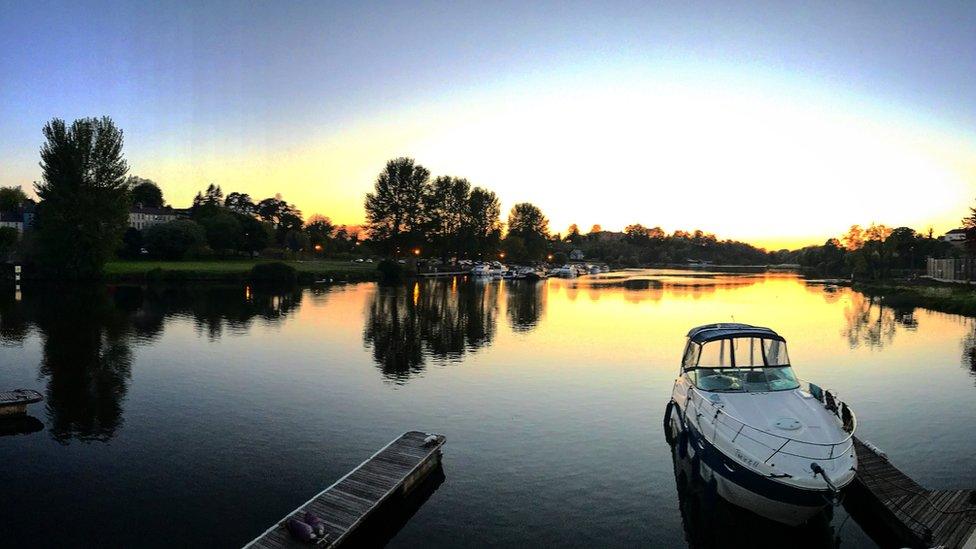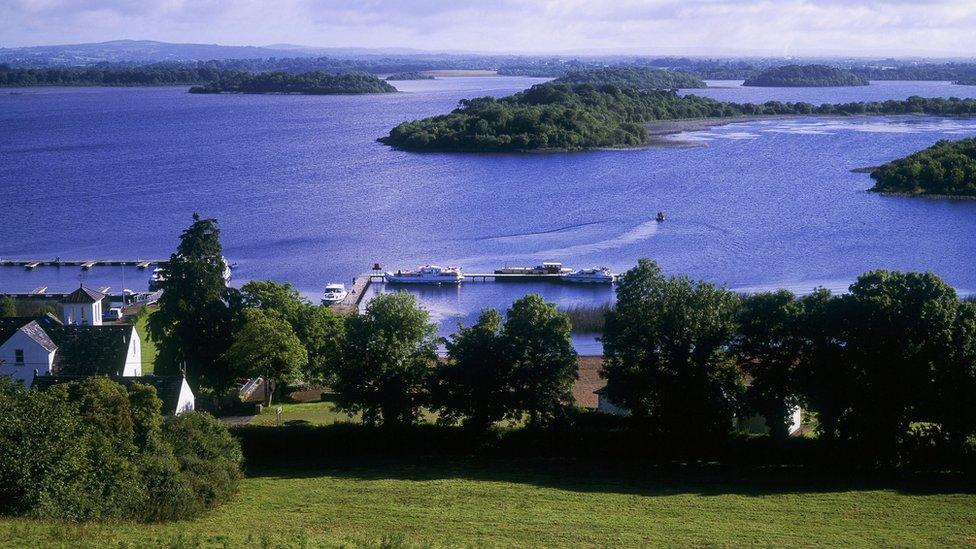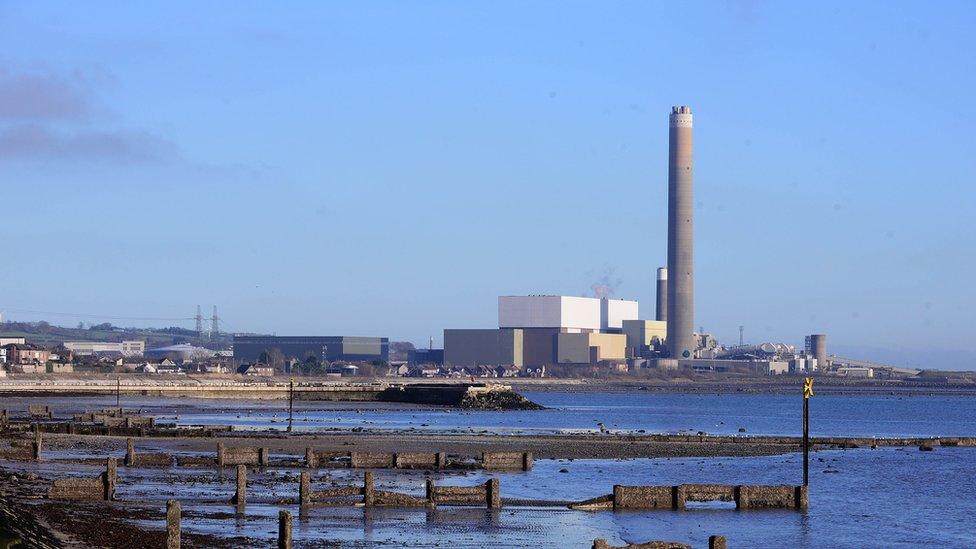The red diesel headache for pleasure boat operators
- Published

The boating community on Lough Erne says it is experiencing a quieter summer on the water, mostly due to soaring fuel costs.
One hire operator says his business is down by as much as two-thirds.
Another said Northern Ireland's hire businesses are at a "disadvantage" since they can no longer use the cheaper red diesel for propelling their vessels unlike their counterparts in the rest of the UK.
John Patrick McCaldin runs a cruiser hire company based in Irvinestown, with a subsidiary in County Cavan.
"The average fuel bill has more than doubled. It's around £200 or £250 a week - the average week's hire is around £1,500," he says.
"Before, £100 was not too bad, now you're looking at nearly another 20% on top of your hire."
The average white diesel price is now 196.0p per litre, with red diesel at 99.14p.
The UK government has banned the use of red diesel - which is standard diesel but taxed at a lower rate - in a number of sectors including construction and manufacturing in a bid to help meet its climate change targets.
Red diesel is diesel that had been used mainly for off-road purposes, such as to power bulldozers and cranes used in the construction industry, or to power drills for oil extraction, according to a government policy paper, external.
It accounted for about 15% of all the diesel used in the UK and was responsible for the production of nearly 14 million tonnes of carbon dioxide a year.
However, the government allowed recreational boaters in England, Scotland and Wales to continue to use it.
This was not extended to Northern Ireland due to Brexit obligations and to align it with the type of fuel used by pleasure craft in the Republic of Ireland.
"If you do a like-for-like comparison, that's a competitive disadvantage for us," Mr McCaldin said.
"We have to abide by that, whereas the rest of the UK doesn't.
"It's here to stay until the {Northern Ireland] protocol's sorted out, which doesn't seem to be any time soon."

His business has benefited from the growth in staycations during the Covid-19 pandemic when international travel was restricted, but that has changed.
"We are getting a lot of cancellations, a lot more than other years, and I don't know if it's that people are put off by the cost of fuel or whether people are going away after Covid," he adds.
Mark Pancott rents small pleasure craft in Enniskillen, catering to tourists and locals.
"Everything is very last minute with our customers, we have very few advance bookings," he says.
"This makes life difficult, particularly when organising staff numbers and payroll.
"Fuel costs are just an added headache, along with everything else."
The government has said, however, that it would introduce a new relief scheme under which private pleasure craft users in Northern Ireland would be able to claim a relief for the proportion of their fuel that would be used for non-propulsion.
'Huge expense'
But recreational boater Conor Byrne, from Enniskillen, says the new rules "only makes an expensive pastime even more expensive".
"If an official comes and checks my boat for use of marked diesel, it will be positive as the boat has been using marked diesel for 20 years," he says.
To eliminate traces of the redundant fuel, Mr Byrne would need to deep-clean or fully replace his tank.
As his boat is of considerable age, he anticipates it would need to be custom-made at "huge expense".
"When I put diesel in the tank, I keep the receipt to show the official if they ever come to check," he adds.
An HM Revenue and Customs spokesperson said the changes for diesel used in private pleasure craft in Northern Ireland would be monitored.
"HMRC activity focuses on detecting and deterring outlets for illicit fuel, with special units performing risk-based interventions throughout the fuel supply chain," a spokesperson adds.
The Royal Yachting Association (RYA), the UK-wide governing body for sailing, campaigned against the banning of red diesel for vessel propulsion.
It told BBC News NI: "RYA and RYA Northern Ireland continue to work closely with members of the sailing and boating community, providing representation at government level and issuing advice on key issues," a spokeswoman said.
Related topics
- Published22 January 2022

- Published1 April 2022

- Published16 March 2022
